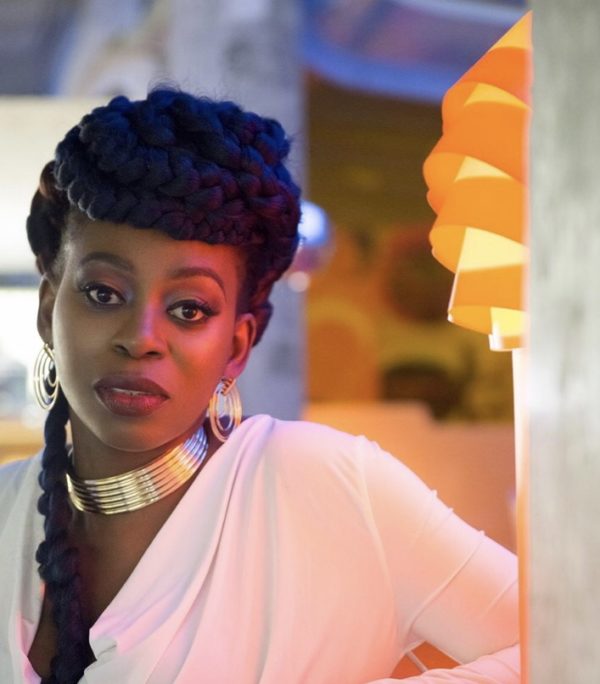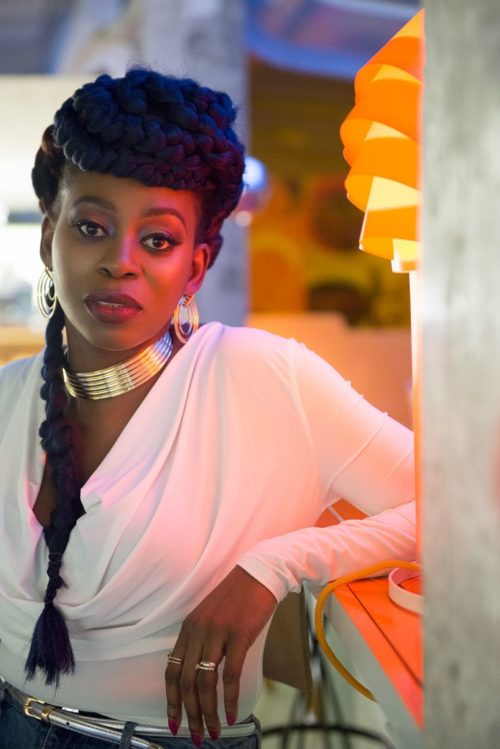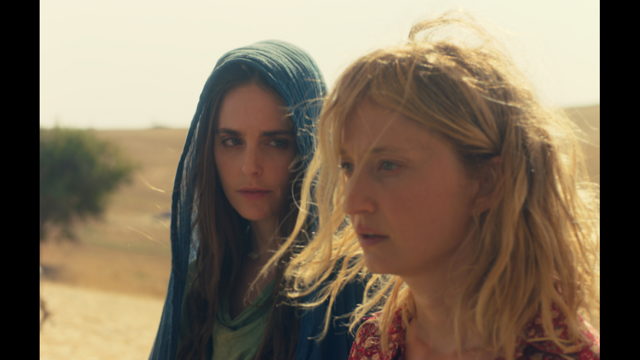Sarah Téibo, the London philanthropist jazz singer
At a time when England is going through a tough quest for identity, where the country is more divided than ever, where the economic future of the nation is uncertain, the London art scene has lost nothing of its dynamism. It is true that London, with its multiculturalism, wealth and international stature, remains a welcoming and creative place.
If many Londoners feel slightly depressed or embarrassed - to use a British euphemism - by the Brexit saga, the music scene allows them to escape the political torpor that paralyzes British society. A few weeks ago, we went to a gig in a beautiful and cosy venue, Pizza Express Holborn: Ladies Night with four talented British jazz singers. The artist that impressed us the most is Sarah Téibo who took us to a rhythmic and joyful world with her energy, her beautiful voice, her music, her smile and her message of hope.
At the end of the concert, Sarah personally thanked her audience. It gave us the opportunity to greet her, congratulate her and talk to her for a few minutes. Our first impression was that this woman who has a diva aura was also a sincere philanthropist and a beautiful woman with an incredible kindness. We are delighted that she agreed to a short interview with Form-Idea.
Do you come from a musical family?
In my family we all love music and this stems from my late mother’s taste in music. She introduced me to a lot of Motown classic R&B and soul music, which has in turn influenced my style of writing and performing music. Though my 3 siblings also sing, I’m currently the only one who sings professionally
How and when did you find that you loved to sing and write songs?
I started writing songs as a teenager in the youth choir in church. We were encouraged to write our own music which we then performed in church. This is how I discovered my gift and actually started to hone and develop it.
How would you describe your music?
Soulful, inspirational and easy listening.
Do you find artists such as Ladysmith Black Mambazo an inspiration?
Absolutely. Their songs were among the many I listened to as I was growing up. The classic tune ‘Homeless’ with its soul stirring harmonies and authentic African rhythm is in a class by itself.
You have a full-time job in finance in London plus two kids; where do you find the energy and the time to write songs and sing?
I honestly don’t know how I find the time. I am nocturnal by nature, so I’m often up working on my music after the kids have gone to sleep. Also, I’m just one of those people who thrive by being busy, so there’s never a dull moment with me. That said, I do try not to overwork myself, so I sometimes delegate less critical tasks - like home cleaning - to paid help.
You talk a lot about hope in your songs; do you think most people are trapped in their daily life and surrender any hope for a better future?
I do try and write songs that would inspire and encourage people to keep pushing in spite of the hurdles of life - which inevitably keep coming. It’s normal to feel hopeless at some point, because life by its very nature is like a rollercoaster - full of ups and downs. This is why I sing songs of hope, so that at whatever point people are on their journey, they would be able to take something away from it.
What part does faith play in your life?
Faith plays a very strong part of my life. I’m a Christian and try as much as possible to show love to the people around me, because people don’t really care how much you know unless they know how much you care.
Is it important to feel blessed?
Yes, it is!! And I’ve written a song about it - which is gradually becoming an Afrobeat anthem. Knowing we are blessed is a great source of joy and optimism.
You sing about forgiveness; why is it so important to forgive?
When my mother passed in December 2017, I was really angry because I felt certain people could have acted more responsibly and maybe this would have prevented her passing. I was very bitter and could not bring myself to forgive them. But holding on to this feeling only left me heavy and depressed and made it difficult for me to deal with the grief of my mother’s passing. When I slowly got to the point where I was willing to let the negativity go, I had peace. I felt free! Unforgiveness holds us prisoner until we decide to let go of those who offended us.
Your mum was Nigerian. I have heard Lagos has become a very creative and dynamic capital in terms of music and films; is there any African influence in your music?
There is a strong African influence in my music, as we not only listened to Motown classics in our household but a lot of highlife music (from Ghana), Zulu music and Afrobeats music. I have two Afrobeat tracks - ‘I will praise!’ from my first album ‘Walk with me’ and ‘Blessed’ from my latest album ‘Keep Walking’.
Would you consider yourself a feminist artist?
The word feminist has been very misconstrued of late, so I would be careful to just call myself an artist who loves to support other females and help them achieve success in their endeavours in whatever way I can.
What is your favourite song of all time?
That is a really tough one! I have so many favourite songs but one of my all-time favourites that takes me back to those times when I was sat at my mother’s feet listening to music, would have to be ‘Summer Soft’ by Stevie Wonder from the album ‘Songs in the key of life’.
You are a Compassion Ambassador; could you please tell us more about it?
Compassion is a global charity with a relentless passion to empower every child left vulnerable by poverty. By working in partnership with local churches in developing countries, they link children in critical need with caring sponsors all over the world. I personally sponsor a little girl in GHANA with the same birthday as my younger daughter.
Where do you plan to perform next?
I will be on tour in Australia in April and then singing at the UK’s biggest Christian festival - Big Church Day Out in May. I’m hoping to do more gigs in Europe, particularly France and Germany, should the opportunity present itself.
Interviewed by Pierre Scordia and Annie Solomons. form-idea.com london, 26th April 2019.


 Sarah Téibo
Sarah Téibo
